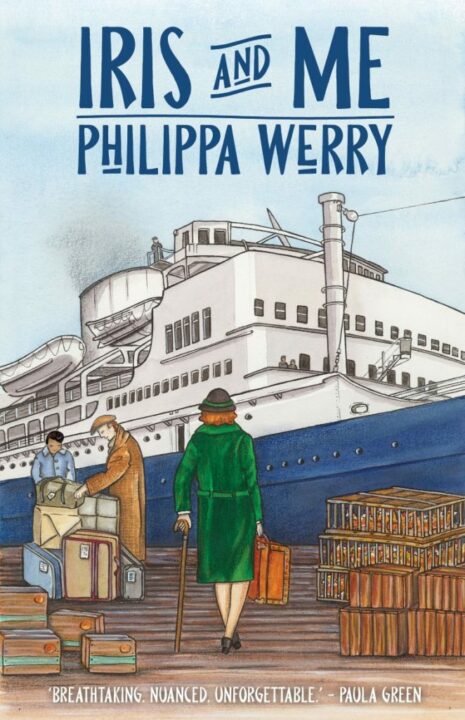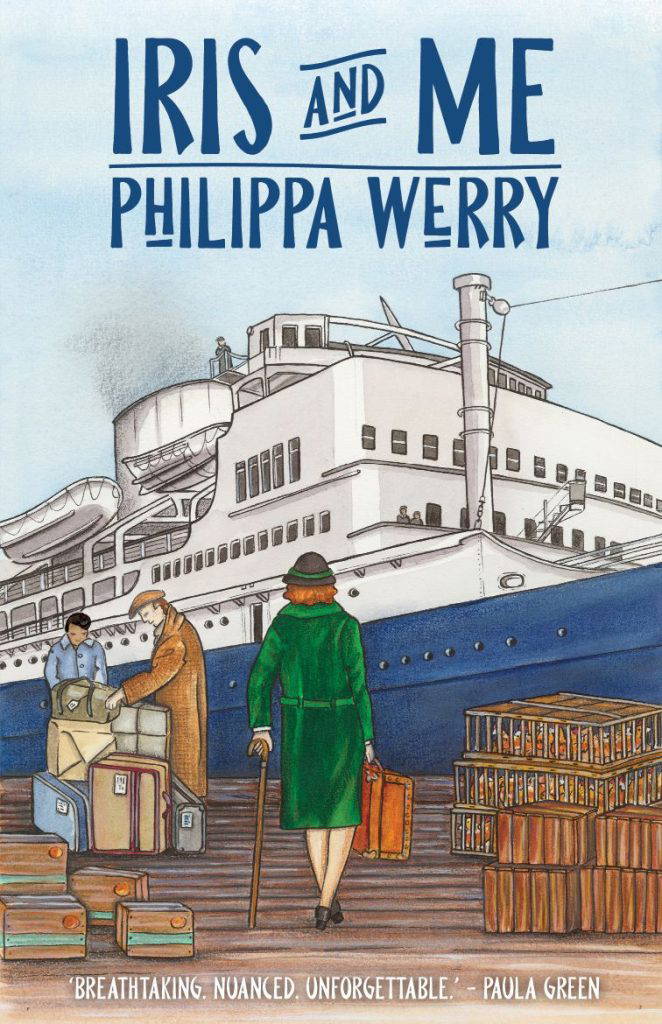Iris and Me

Iris and Me by Philippa Werry. The Cuba Press (Ahoy! Imprint). RRP: $25.00. Pb, 182 pp. ISBN: 9781991950844. Reviewed by S J Mannion
In the interests of honesty and transparency, and to guard against any accusations to the contrary, I hereby own, ‘YES, I absolutely loved this book,’ and NO, the author is not a friend of mine.
What a gorgeous read it was, this elegantly imaginative verse novel. No galloping metre here, more a restrained waltz, or something stately … a Catalonian sardana perhaps, or something that leads the reader along, in a dancing kind of camaraderie. A short while in, I could feel my mind and body both relax, and engage. The rhythm of the rhyme and the undulating nature of word and verse had an elucidatory effect on my spirit, like a cool shower of rain or a Mozart sonata.
‘When Iris puts something into words, that’s how you see it forever. Autumn will run like a boy among the birch trees … glory, in a shining sea of moonrise, lay on Lambton Quay.’ (p. 34)
And there is a story too, a good one. A proper narrative driven forward by the trials (and tribulations, of course) of Iris and her loyal and constant ‘companion’, and with the same sort of steely gentility of Iris herself. This is a skilled and polished book for all its seeming simplicity. It is only the very best work that looks easy, and it is a mark of the truly refined to make it so. Skill is also shown in the delightful ease and lightness to the storytelling which serves as a delicate counterpoise to the shadow.
‘She loved each place of refuge
That we found: the hotel in Hong Kong,
Anna’s house in Shanghai,
and here in Canton, the tiled roofs
With their curves and peaks
Glittering green and blue in the sunshine.
Even a bunk in a crowded train carriage
could be a temporary home.’ (p. 60)
And there is shadow, as Longfellow says in his morose poem ‘The Rainy Day’ “… Into each life some rain must fall.” Iris’s life is certainly no exception. But she endures and she does it with a stoic heroism and determination that is truly admirable. This story is remarkable in its almost ordinariness. Yet this is no ordinary life. And certainly not for those times, and Philippa Werry pays due tribute to the protagonist, the writer (poet, novelist, journalist) Robin Hyde, even by the very structure of this novel. A most immersive and entertaining read, both in terms of form and content. This particular incarnation only elevates the form.
‘There was no food on the train
But the station master took pity on us,
Invited Iris in
And fed her on slippery fried eggs and toast.’ (p. 81)
I loved the idea of making this companion the narrator_it made for such an involved yet somehow (still) impartial viewpoint—an excellent and unusual combination of intimacy and inanimacy. A clever conceit with more than mere concept going for it. There is a lot of feeling in this novel, a lot of what we might call ‘empathy’ or ‘affinity’ or perhaps even ‘concord’?
‘I couldn’t help but notice
the bound feet of the women
so tiny
when I looked at my own one strong foot. (p. 88)
There is just so much to enjoy in this book, I will read it again and again, I think. For the story and the sound, for the glory and the ground, for all the things that make up a life well lived.
Iris, I salute you. Philippa, you too. A beautifully rendered life story, sweetly searing and deftly seasoned, and so very well told.
S J Mannion is an Irish writer living in Christchurch, New Zealand. When she can she writes. When she can’t she reads. In between she ukuleles. She is published widely and variously.

